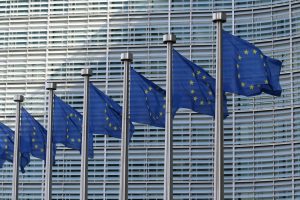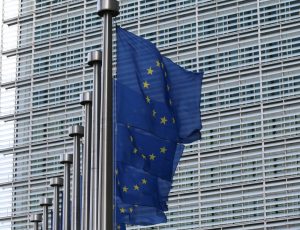Conversation Series: Niels Dijkman (Key2impact) & Danijela Piljic on the future of sustainability reporting
Sustainability reporting is at a crossroads, with evolving regulations shaping how companies disclose their impact. In this conversation, Niels Dijkman from Key2impact and Danijela Piljic from Steward Redqueen discuss the challenges and opportunities of sustainability reporting, focusing on the EU’s latest Omnibus legislation. Their companies have joined forces to help businesses embed sustainability into their core strategies and navigate evolving regulations, offering complementary expertise and services.
Niels: As we start our conversation, it feels like we’re rewriting the book on sustainability reporting. Where do we stand now?
Danijela: The discussion currently revolves around the EU’s Omnibus legislation, which aims to reduce administrative burdens for companies. Specifically, it addresses sustainability reporting obligations and the enforceability of related actions. Leaked documents from the past days suggest a proposal that simplifies reporting by raising the threshold for Corporate Sustainability Reporting Directive (CSRD) to companies with at least 1,000 employees and EUR 450 million in turnover, while also reducing requirements regarding value chain responsibilities. However, the double materiality perspective seems to remain intact.
Niels: The evaluation of the CSRD, which hasn’t even been fully implemented, seems rushed and partially politically motivated. Does simplifying sustainability reporting make sense?
Danijela: Sustainability reporting has become a complex mix of frameworks, legal mandates, and voluntary standards. While intended to enhance transparency and accountability, it often overwhelms businesses. The Omnibus Directive will be pivotal in bringing clarity and reducing complexity around data requirements. This will enable businesses to align more effectively with data needs of investors to assess and support impactful and sustainable investment decisions. However, streamlining regulations should not be an excuse for deregulation that undermines sustainability efforts—it’s important not to throw the baby out with the bathwater.
Niels: I completely agree. A single, clear framework is essential. Sustainability reporting, whether mandatory or voluntary, provides companies with valuable insights into their operations and risks. A structured framework helps set clear goals, measure impact, and manage risks such as supply chain vulnerabilities and reputational issues. Ultimately, reporting helps businesses focus on what matters and enhances their strategic resilience.
Danijela: What do you mean by strategic resilience?
Niels: Strategic resilience means a company’s ability to adapt and thrive in an uncertain world. Environmental, social and governance challenges such as climate change, forced labour and corruption, pose real threats to business continuity. Real threats that won’t disappear by eliminating reporting requirements. Sustainability reporting based on double materiality analysis helps companies improve their risk management by identifying and addressing ESG risks, leading to more robust business models. By requiring long-term sustainability disclosures, it forces companies to plan ahead, ensuring they can adapt to changing market conditions.
Danijela: Exactly. Companies that treat sustainability as a strategic imperative not only build trust and resilience but also create long-term value for society. Moreover, these companies will be best positioned to future-proof their operations against risks such as climate change and resource scarcity, identify new opportunities, and contribute meaningfully to sustainable development.
Niels: Steward Redqueen has been advising businesses on impact measurement, management, and reporting for 25 years. Given the current uncertainty in sustainability regulations, what valuable lessons can be applied to help businesses navigate these challenging times?
Danijela: One key lesson is that harmonization fosters transparency and trust. The CSRD promotes standardized, comparable, and verifiable sustainability data. Another crucial aspect is attribution. Companies must clarify which impacts stem from their actions versus external influences such as industry trends or policy changes. This prevents misleading claims and builds credibility. Finally, sustainability reporting should be more than a compliance exercise. It should tell a compelling, strategic story about a company’s impact. The most effective reports align with corporate strategy, focus on material issues, and clearly articulate the business value of sustainability to investors, customers, and regulators.
Danijela: How does the collaboration between Key2impact and Steward Redqueen aims to help companies?
Niels: Our strategic partnership extends beyond compliance—it helps mid-sized to large Dutch companies embed sustainability into their core strategies and create measurable impact. By combining our expertise, we provide businesses with deep knowledge and practical experience in impact management, reporting, and compliance. Steward Redqueen brings 25 years of sustainability and impact advisory expertise, while Key2impact specialises in sustainability reporting, assurance, and fostering organization-wide buy-in for seamless implementation.
For more information, please reach out to danijela.piljic@stewardredqueen.com
















